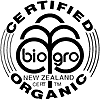Earth To Paris: The Organic Movement Calls for an End to High-emitting Industrial Farming Practices
Industrialized farming costs $3.33 trillion per year in environmental damage.?We can remedy this by switching to agro-ecological farming practices such as Organic
Agriculture. With the world awaiting an agreement from the upcoming COP21 climate conference in Paris, the organic food and farming movement calls for commitment to land-based mitigation measures
that contribute to food security and tackle the root causes of climate change.?
Producing the food we eat from farm to fork accounts for about half of all human-induced greenhouse gas emissions. When it comes to greenhouse gas (GHG) emissions,
the agricultural sector is second only to the energy sector. To date climate negotiators and policy-makers have paid little attention to this fact. IFOAM –
Organics International calls for a climate agreement recognizing the importance of the land sector and the start of a process developing clear and transparent principles to ensure actions taken on
climate change are in accordance with social and ecological considerations.“Industrial farming is one of the major drivers of climate change, and business as usual is not an
option, “ states André Leu, President of IFOAM – Organics International. “Only a transition to agroecology and organic farming can lead to deep cuts in emissions
from food production”.
We are producing enough to feed the world yet one third of all food never makes it to the table. Half of the smallholder farmers who grow the majority of global agricultural produce are amongst the
world’s hungry. As Andre Leu, points out “Unless farmers are given the agro-ecological technologies they need to meet the challenges posed by climate change, impacts on food
production will be devastating, pushing millions into poverty.” Agriculture and forest-related mitigation actions should thus contribute to food security and tackle activities with the
highest emissions such as fertilizer use particularly in ‘high-emitting’ countries.
Land-based mitigation measures should not be considered a quick fix for climate change, using carbon offsetting instead of phasing out fossil fuels. Gábor Figeczky, Advocacy Manager at IFOAM -
Organics International warns “If, in the name of fighting climate change, land used by local farmers to produce food is acquired for use in carbon offsetting projects, then we
could put a further 600 million people at risk of hunger by 2080.”??
We cannot lose sight of the fact that climate change is doing damage to those who grow our food. Farmers must be empowered to lift themselves out of poverty and hunger, nourish growing local and
global populations and mitigate global warming through low emission and high sequestration farming practices and systems.
Unlike chemical farming exacerbating climate change, organic farming practices use inputs that lead to less GHG emissions and are beneficial to soils. Organic farmers work with techniques such as
crop rotations that allocate more carbon below ground. This is where land-based mitigation measures should be rooted – cutting emissions and capturing carbon in soil without jeopardizing food
security.
Contacts and Links
- IFOAM – Organics International, Gábor Figeczky, Advocacy Manager, g.figeczky@ifoam.bio, +49 157 56925021
- IFOAM EU Group, Eric Gall, Policy Manager,?eric.gall@ifoam-eu.org,+32 491 07 25 37
- Short Video: What We Want From the Climate Agreement
- www.ifoam.bio/news/cop21
- 1Trucost Study:?Natural Capital Impacts in Agriculture
















